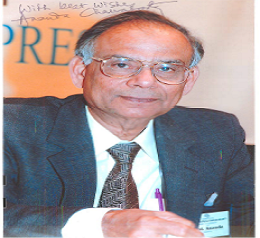Scholars International Conference on
Infectious Diseases Research
THEME: "Novel Advancements in the field of Infectious Diseases Research"
 18-19 Nov 2019
18-19 Nov 2019  Radisson Narita, Tokyo, Japan
Radisson Narita, Tokyo, Japan THEME: "Novel Advancements in the field of Infectious Diseases Research"
 18-19 Nov 2019
18-19 Nov 2019  Radisson Narita, Tokyo, Japan
Radisson Narita, Tokyo, Japan 
University of Illinois College of Medicine, USA
Title: Professor
Ananda M. Chakrabarty is a Bengali American microbiologist, scientist, and researcher, most notable for his work in directed evolution and his role in developing a genetically engineered organism using plasmid transfer while working at GE. Prof. Chakrabarty genetically engineered a new species of Pseudomonas bacteria (”the oil-eating bacteria”) in 1971 while working for the Research & Development Centre at General Electric Company in Schenectady, New York. At the time, four known species of oil-metabolizing bacteria were known to exist, Prof. Chakrabarty discovered a method for genetic cross-linking that fixed all four plasmid genes in place and produced a new, stable, bacteria species (now called pseudomonas putida) capable of consuming oil one or two orders of magnitude faster than the previous four strains of oil-eating microbes. The new microbe, which Chakrabarty called “multi-plasmid hydrocarbon-degrading Pseudomonas,” could digest about two-thirds of the hydrocarbons that would be found in a typical oil spill. The bacteria drew international attention when he applied for a patent—the first-ever patent for living organism. He was initially denied the patent by the Patent Office because it was thought that the patent code precluded patents on living organisms. Prof. Chakrabarty’s landmark research has since paved the way for many patents on genetically modified micro-organisms and other life forms and catapulted him into the international spotlight. Currently, his lab is working on elucidating the role of bacterial cupredoxins and cytochromes in cancer regression and arresting cell cycle progression. He has isolated a bacterial protein, azurin, with potential antineoplastic properties. He has expanded his lab’s work to include multiple microbiological species, including Neisseria, Plasmodia, and Acidithiobacillus ferrooxidans. In 2001, Prof. Chakrabarty founded a company, CDG Therapeutics, (incorporated in Delaware) which holds proprietary information related to five patents generated by his work at the University of Illinois at Chicago. Chakrabarty is currently a Distinguished University Professor in the Department of Microbiology and Immunology in the University of Illinois at Chicago College of Medicine. Apart from being an eminent scientist, Ananda Chakrabarty has been an advisor to judges, governments, and the UN. As one of the founding members of a UNIDO Committee that proposed the establishment of the International Centre for Genetic Engineering & Biotechnology (ICGEB), he has been a member of its Council of Scientific Advisors ever since. He has also served the Stockholm Environment Institute of Sweden. He has been on the Scientific Advisory Board of many academic institutions such as the Michigan Biotechnology Institute, the Montana State University Centre for Biofilm Engineering, the Centre for Microbial Ecology at the Michigan State University, and the Canadian Bacterial Diseases Network based in Calgary, Canada. Dr. Chakrabarty has also served as a member of NIAG, the NATO Industrial Advisory Group based in Brussels, Belgium. He is a member of the Board of Directors of Einstein Institute for Science, Health and the Courts, where he participates in judicial education. More recently, he has been involved in international judicial work, serving as a Scientific Advisor for meetings in Hawaii and Ottawa, Canada, organized by the Supreme Court of Canada. For his work in genetic engineering technology, he was awarded the civilian Padma Shri by the Government of India in 2007.
His research interest involves development of promiscuous bacterial protein/peptide drugs with anticancer, anti-viral and anti-parasitic activities. Bacterial pathogenesis, anticancer drug development and patent related issues.